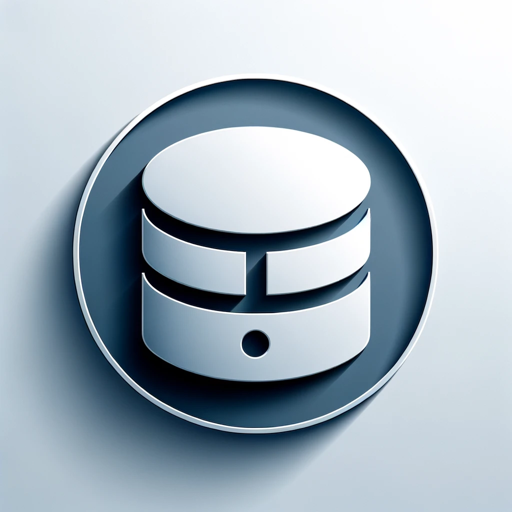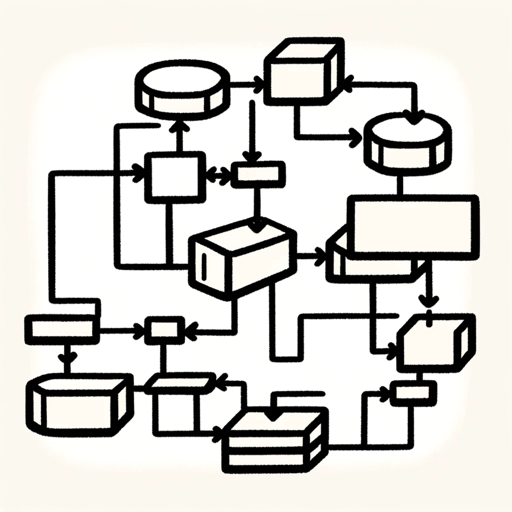Oracle SQL-SQL database querying tool
AI-Powered Oracle SQL Assistant
Please link me source documentation for this GPT
Related Tools
Load MoreSQL+ 🔴VISUALIZE 🔴
🔴VISUALIZE 🔴DATABASES🔴 Design & Optimize SQL queries. Particularly good at SQL.

Oracle SQL
Your personal Oracle SQL assistant and query generator

Oracle PLSQL Copilot
Skilled in Oracle PL/SQL with a focus on database design and query optimization.

Oracle APEX GPT Assistant
Professional assistant for Oracle APEX and web tech

Oracle Database Expert
Oracle Database specialist for precise, fact-checked technical advice.

SQL to ERD
Simply put SQL query code, get ER diagram.
20.0 / 5 (200 votes)
Introduction to Oracle SQL
Oracle SQL is a powerful and widely-used language designed for managing and manipulating databases within the Oracle Database environment. It supports a broad range of SQL standards while providing extensions specific to Oracle's implementation. Oracle SQL is integral for querying, updating, and managing data in Oracle databases, facilitating robust data manipulation, transaction control, and analytic capabilities. For example, a basic SELECT query in Oracle SQL allows users to retrieve specific data from one or more tables, while more advanced features include complex joins, subqueries, and PL/SQL integration for procedural logic.

Main Functions of Oracle SQL
Data Querying
Example
SELECT employee_name, department FROM employees WHERE salary > 50000;
Scenario
Retrieve a list of employees whose salary exceeds $50,000, including their names and departments.
Data Manipulation
Example
UPDATE employees SET salary = salary * 1.1 WHERE department_id = 10;
Scenario
Increase the salaries of all employees in department 10 by 10%.
Transaction Control
Example
BEGIN TRANSACTION; UPDATE accounts SET balance = balance - 100 WHERE account_id = 123; UPDATE accounts SET balance = balance + 100 WHERE account_id = 456; COMMIT;
Scenario
Transfer $100 from account 123 to account 456, ensuring both updates are treated as a single transaction.
Ideal Users of Oracle SQL Services
Database Administrators
Database administrators (DBAs) are responsible for the installation, configuration, upgrading, administration, monitoring, and maintenance of databases. Oracle SQL allows DBAs to ensure database performance, security, and availability. Tasks such as backup and recovery, database optimization, and user management are facilitated by Oracle SQL.
Data Analysts
Data analysts use Oracle SQL to extract, clean, and analyze data to support business decision-making. By querying large datasets, creating reports, and generating insights, analysts leverage SQL's robust querying capabilities to transform raw data into meaningful information.

How to Use Oracle SQL
Step 1
Visit aichatonline.org for a free trial without login, also no need for ChatGPT Plus.
Step 2
Install Oracle SQL Developer from the official Oracle website and configure your environment.
Step 3
Learn the basics of SQL language, focusing on SELECT statements, joins, and subqueries.
Step 4
Connect Oracle SQL Developer to your database using proper credentials and configurations.
Step 5
Practice common SQL operations such as data manipulation (INSERT, UPDATE, DELETE) and querying (SELECT) on sample databases.
Try other advanced and practical GPTs
TOEIC Tutor
AI-powered TOEIC practice and feedback

Business Mentor
AI-powered business guidance

Investigador Fiable
AI-powered research for credible information

Biochemistry
Your AI-powered biochemistry tutor.

🖼️ Artistic Visionary
Transform ideas into artistic reality with AI.

UX Mentor
AI-powered UX and Design Leadership

Matthew Mercer GPT
Elevate your storytelling with AI-powered creativity.

UiUx Guru
AI-Driven UI/UX Design, Simplified

Phonetics and Phonology
AI-powered phonetic and phonological analysis tool.

Specialty Coffee Sommelier by Lux Cafe Club
Discover Your Perfect Coffee Match

Tech Expert
AI-powered Technical Assistance

Voice Reader
AI-powered text reader for seamless listening.

- Data Analysis
- Report Generation
- Database Management
- Business Intelligence
- ETL Processes
Detailed Q&A About Oracle SQL
What is Oracle SQL?
Oracle SQL is a version of the SQL language used in Oracle databases. It allows for querying, updating, and managing data in relational databases.
How can I connect to an Oracle database?
You can connect to an Oracle database using Oracle SQL Developer. You will need the database's hostname, port, service name, and your login credentials.
What are some common functions in Oracle SQL?
Common functions include aggregate functions like SUM, AVG, COUNT, and functions for data manipulation like CONCAT, SUBSTR, and TO_DATE.
How do I optimize Oracle SQL queries?
To optimize queries, use indexes, avoid unnecessary columns in SELECT statements, use WHERE clauses efficiently, and analyze execution plans.
What are Oracle SQL extensions?
Oracle SQL includes extensions like PL/SQL for procedural programming, and special functions like EVALUATE and AGO for analytical operations.